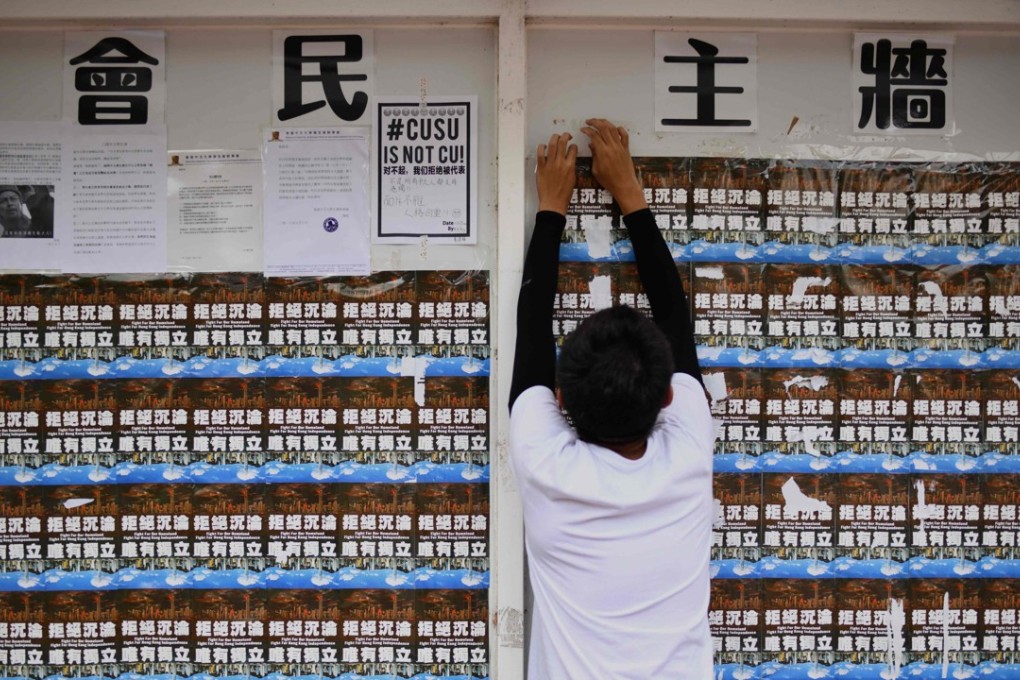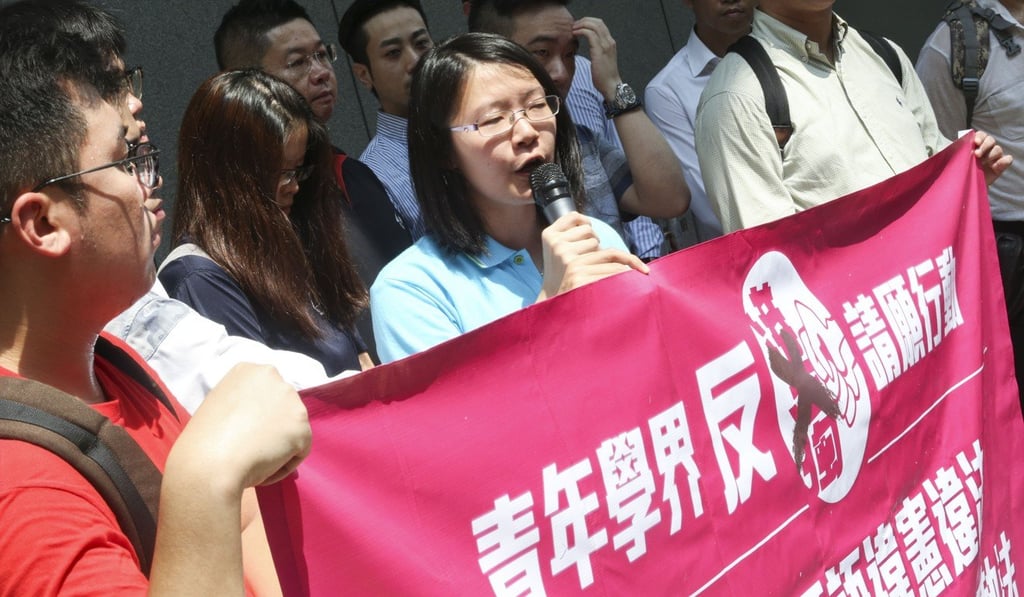Independence banners at Hong Kong universities one more sign China is losing the battle to win over city’s youth
Regina Ip says neither subsidies nor outright suppression of radical speech appears an effective tactic to turn the tide of young Hongkongers’ drift away from connecting with mainland China. Pro-independence posters on campuses are only the most radical expression of widespread disaffection

To date, the student unions have refused to take down the offending materials posted in the public space they manage. Pro-China legislators have stepped up their anti-independence campaign, but the government’s hands are tied. Senior counsel and Executive Council member Ronny Tong Ka-wah has warned that such publication, if seen to be made with “seditious intent”, risked breaking Hong Kong law. But if the government were to prosecute, it would risk provoking a violent backlash.
Even as Lam fires on all cylinders to prepare for her first policy address, she faces the first real challenge of her fledgling administration – submit to the pro-China camp or protect Hong Kong’s freedoms?
Hong Kong independence banners present a real test of Carrie Lam’s political wisdom
